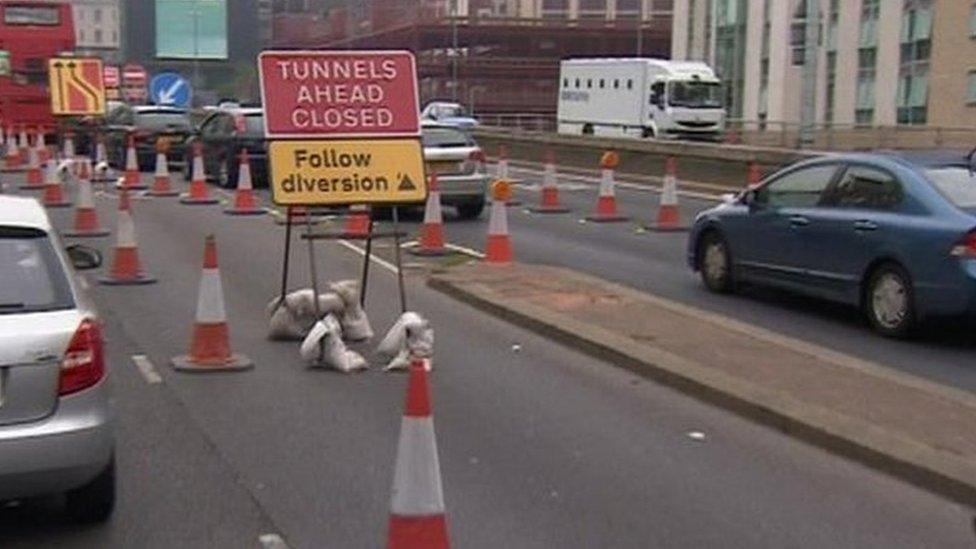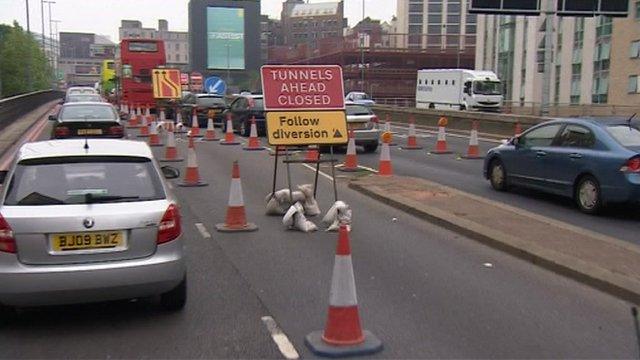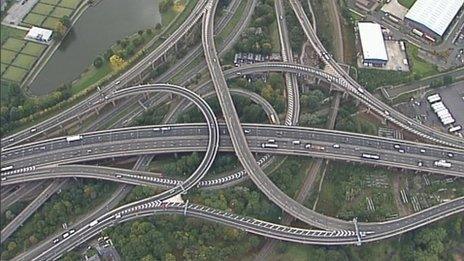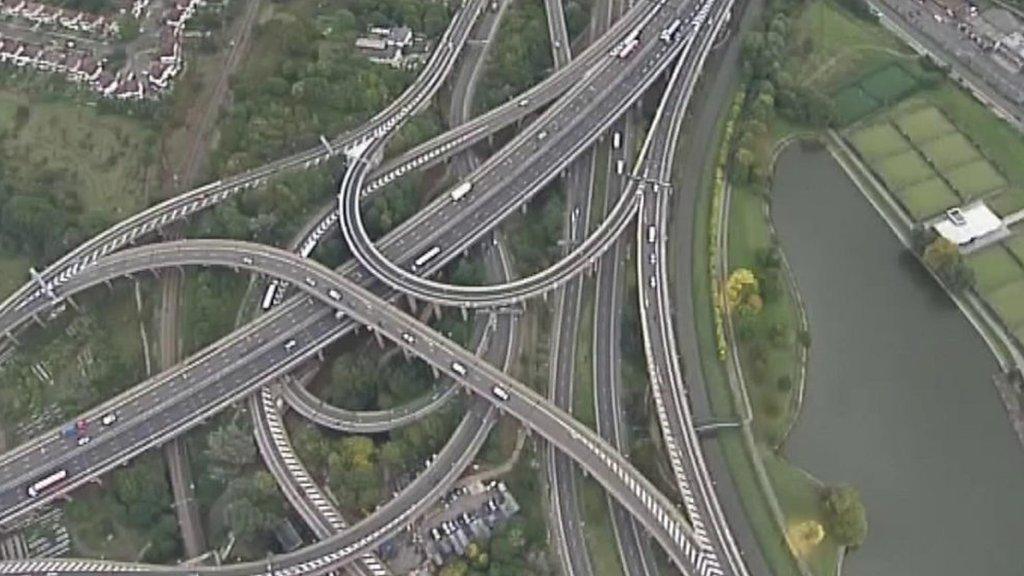M6/A38: Why so many road works into Birmingham?
- Published
For drivers commuting in and out of Birmingham during rush hour it can feel like there are 'always' roadworks. Car clogged roads are made even worse for drivers with regular diversions and temporary traffic lights. But why are there so many road works on the M6 and A38?
The huge task of waterproofing the M6/A38(M) Gravelly Hill Interchange has been under way since the summer. It has brought lane closures, a 30mph speed limit and lots of traffic cones.

Road tunnels on the A38(M) through Birmingham City Centre were closed for six weeks through the summers of 2014 and 2015
Barbara Adams from Warwickshire said she was fed up of queuing to get into the city for meetings and socialising. She got in touch through Your Questions to ask us to investigate.
A big part of the problem is the sheer volume of traffic - four routes into Birmingham are among the most congested corridors in Europe, external, according to Inrix traffic data.

Other vital statistics:
The A38M normally has a 50mph speed limit and is used by 500,000 vehicles a day
In 2015, the average speed along the three miles from Corporation Street to Gravelly Hill was 31mph, according to Inrix
On the M6 from J10 Wolverhampton East and J7 Birmingham (North) the average speed was 39mph last year, the traffic data said

And the roadworks are nothing new, in September 2015, the Telegraph, external named the M6, J10a to J13 as one of the 10 longest stretches of roadworks in the UK. It had 9.2 miles of narrow lanes and speed restrictions for motorists to negotiate.
'Distress way'
Barbara Adams lives in Coleshill in north Warwickshire and travels into Birmingham for meetings, shopping and to socialise.
She said: "There always seems to be miles and miles of traffic cones.
"The speed limit is always down to 30mph or 40mph and you end up queuing, feeling like you're getting nowhere.
"The Aston Expressway is known as the distress way."

Drivers in Birmingham have faced three summers of roadworks on the Aston Expressway but that's no excuse to take your hands off the wheel
It's never an easy drive but is this year particularly bad?
Waterproofing schemes saw the entire Aston Expressway closed for several weekends over the summer, including days when Aston Villa and Birmingham City football clubs had home games.
Highways England,, external which is responsible for maintaining the M6 and A38 (M), said those closures were expected to last for seven weekends - but the work was completed in four.
The latest work is on track to finish in December, the agency said it had worked closely with Birmingham City Council to plan the roadworks to minimise disruption.
This summer's work followed the A38 six-week tunnel closures during the summers of 2014 and 2015.
But the need for repairs isn't just down to traffic volume, the age and design of the roads also comes into play.

Spaghetti Junction is 40 years old and is driven over by 250,000 vehicles every day, Highways England said
Frank Bird at Highways England said the Aston Expressway and Spaghetti junction were "iconic structures" and part of Birmingham's heritage.
"Most of those structures are 40 years old and because of the height it is far more challenging to constantly repair and update."
When asked if there were 'always' repairs on the roads he said: "We have a cycle...We are doing an awful lot of work at the moment but the anticipation is that then that should last 20 to 25 years.
"The end is in sight but it's still some distance away."
- Published18 July 2014

- Published21 May 2012

- Published27 June 2016
